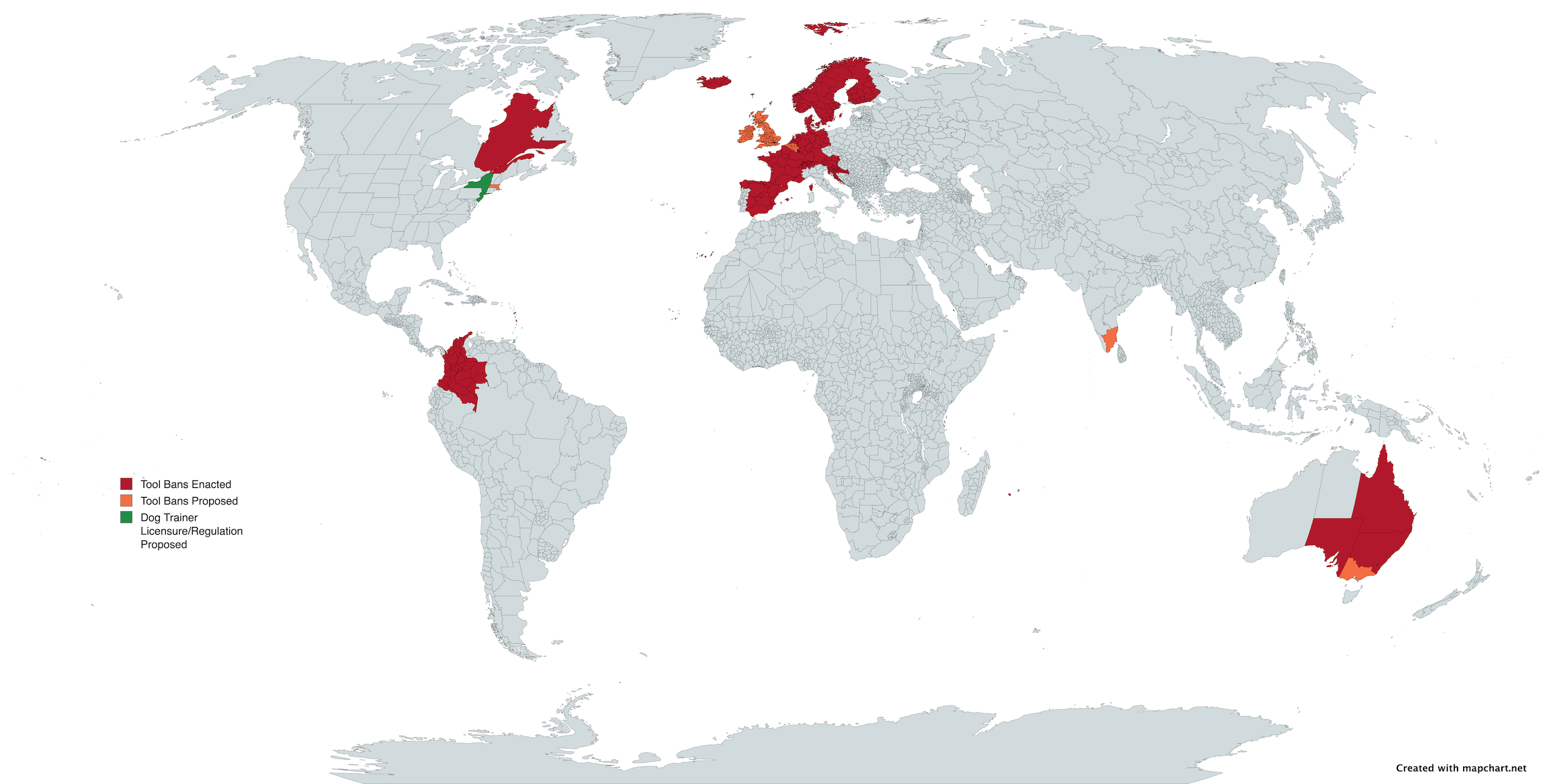Awareness of enacted and proposed laws ensures trainers remain compliant and can adapt their training approaches while continuing to advocate for balanced, effective, and humane practices. It also allows trainers to educate clients and the general public accurately, protect their businesses from potential liability, and participate meaningfully in legislative discussions that shape the future of the profession.
🟥 Countries with Enacted Bans
- Wales – First in the UK to ban e-collars in 2010, making it illegal to use electronic collars for training.
- Germany, Austria, Switzerland – Prohibit e-collars and prong collars under animal welfare laws.
- France – Bans electronic collars and prong collars.
- Spain – Enforced bans on e-collars and prong collars.
- Scandinavia & Nordics – Denmark, Norway, Sweden, Finland, and Iceland ban e-collars, with Sweden and Finland also banning prong collars.
- Netherlands – Ban on e-collars.
- Slovenia – Ban on e-collars.
- Canada – Quebec province bans e-collars.
- Australia – Capital Territory, Queensland, SA (South Australia) and NSW (New South Wales) have banned e-collars and prong collars.
- Colombia – Enacted a ban on e-collars and prong collars as of July, 2025.
🟧 Countries with Proposed Bans
- Belgium (Flanders) – E-collar ban due to take effect in 2027.
- India – Shown with proposals at state level (some states reviewing legislation).
- England – A ban on e-collars was attempted in 2024, but was not enacted.
- Scotland and Ireland – E-Collar bans being proposed.
- Singapore – An advisory has been issued to dog training professionals and dog owners to avoid using e-collars and prong collars while still endorsing the use of Least Intrusive Minimally Aversive (LIMA) approach to training.
- Other parts of Australia – Reflect proposed legislation in additional states beyond those where bans are enacted.
🟩 Other Proposals (Licensure/Regulation)
- New York (USA) – Requires the commissioner of agriculture and markets to establish licensing and educational standards for individuals providing canine training for non-service and non-police dogs; requires such standards to utilize non-aversive, evidence-based, and positive reinforcement techniques.
- Massachusetts (USA) – Proposal for mandatory use of “evidence-based” training techniques that do not result in pain, discomfort, fear or anxiety; provided that electric, prong or choke collars shall not be used as part of this modification plan; further all professionals involved in said modification plan shall be educated in and employ methods that adhere to the principles of the American Veterinary Society of Animal Behavior and the American College of Veterinary Behaviorists



